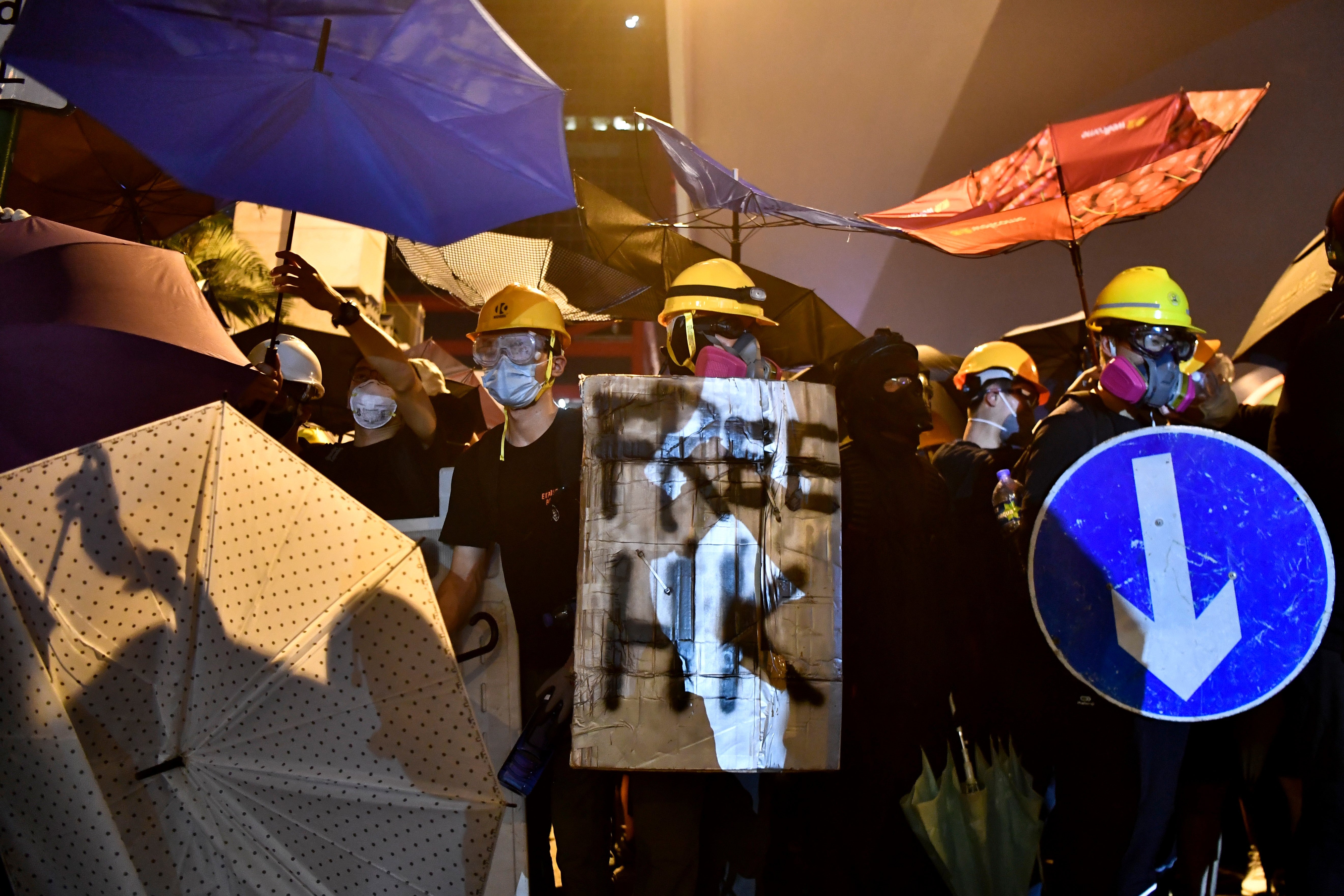Hong Kong upholds ban on masks at protests
Case came as the government was simultaneously making mask-wearing obligatory, due to coronavirus

Your support helps us to tell the story
From reproductive rights to climate change to Big Tech, The Independent is on the ground when the story is developing. Whether it's investigating the financials of Elon Musk's pro-Trump PAC or producing our latest documentary, 'The A Word', which shines a light on the American women fighting for reproductive rights, we know how important it is to parse out the facts from the messaging.
At such a critical moment in US history, we need reporters on the ground. Your donation allows us to keep sending journalists to speak to both sides of the story.
The Independent is trusted by Americans across the entire political spectrum. And unlike many other quality news outlets, we choose not to lock Americans out of our reporting and analysis with paywalls. We believe quality journalism should be available to everyone, paid for by those who can afford it.
Your support makes all the difference.The nation's highest court ruled in favour of the government on Monday, upholding its use of a colonial-era law to unilaterally ban masks at the height of protests last year, reversing a lower court's ruling.
The ruling represents a defeat for Hong Kong's pro-democracy opposition, now forced out of the legislature, which tried to establish that the ban was unconstitutional and violated basic liberties. It also upholds the power of Hong Kong's chief executive, who is handpicked by Beijing, to use colonial-era security laws to unilaterally enact legislation.
Five judges on the Court of Final Appeal unanimously ruled that the ban on masks in October, enacted when anti-government protests were raging on the streets of Hong Kong, was proportionate and necessary. The 71 page judgment also detailed the actions of the protesters, highlighting the violence, "unlawfulness" and "vandalism" prevalent in the city last year, using those reasons to uphold the ban on masks.
"The interests of Hong Kong as a whole should be taken into account, since the rule of law itself was being undermined by the actions of masked lawbreakers," the judgment read, adding that with their faces covered, protesters "were seemingly free to act with impunity."
Unrest broke out in the city in June, sparked by a proposal to allow extraditions from the territory to the Chinese mainland. Under the terms of Hong Kong's handover from Britain to China, the territory is meant to enjoy its way of life, an independent judiciary, the ability to protest and other basic rights until at least 2047.
The protests spiraled into a rebuke of the Chinese Communist Party and its grip on the city. The mask ban, when announced in October, fueled more mass protests and another wave of violent anger on the streets. In late June, Beijing passed a national security law in Hong Kong, its solution to ending anger on the streets by outlawing dissent. Under that law, broadly worded crimes such as "secession" and "foreign interference" can be punished by up to life in prison.
The judgment had the effect of backing the government's narrative of the protests last year, depicting the demonstrations as out-of-control mobs that had to be reined in.
"The judgment privileges one particular narrative of the events of 2019 - that of violent, out-of-control lawlessness - over any other," said Antony Dapiran, a lawyer who wrote a recent book about Hong Kong's protests. "Without any additional context, it comes to a conclusion which supports the government's response."
In November, Hong Kong's Court of First Instance overturned the ban, ruling that it and the emergency ordinance were unconstitutional, prompting an outcry from Beijing's representatives in the city. The legal tussle that followed came at a particularly awkward time, when the government was simultaneously making mask-wearing mandatory because of the novel coronavirus, which was first detected here in January.
The appellate court ruled earlier this year that the ban was partly unconstitutional, and that masks should be allowed at legal public gatherings.
The ruling comes at a time when the courts are under intense scrutiny and are considered the last protection against Beijing's efforts to overhaul the territory's institutions. In November, British Foreign Secretary Dominic Raab said he would consider pulling British judges from the Court of Final Appeal, the same court that handed down Monday's ruling.
The Washington Post



Join our commenting forum
Join thought-provoking conversations, follow other Independent readers and see their replies
Comments